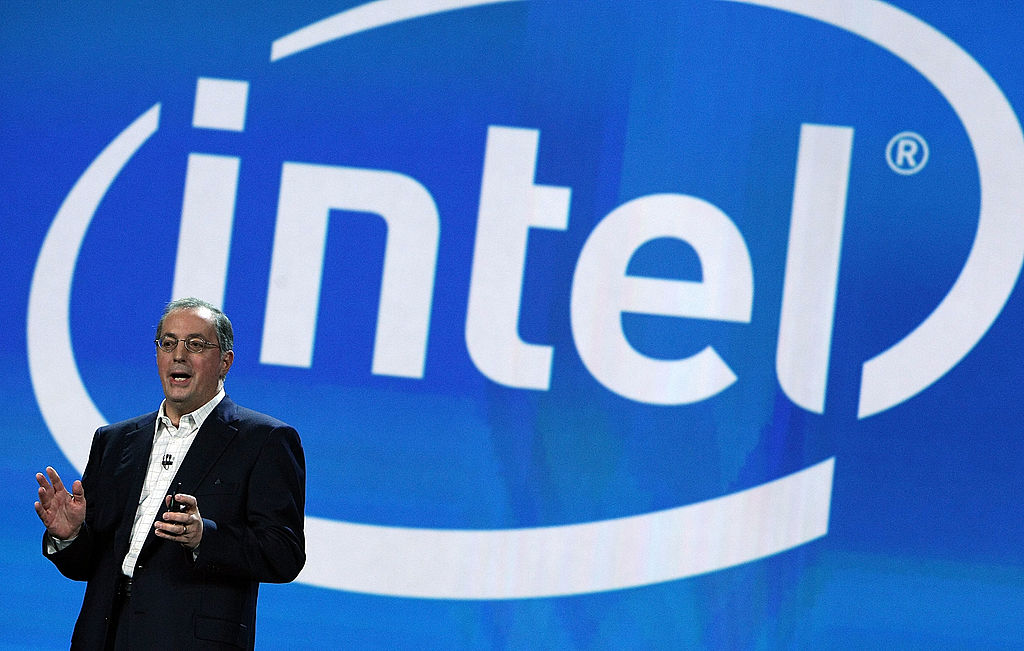Intel's former CEO reportedly wanted to buy Nvidia for $20 billion in 2005 — Nvidia is worth over $3 trillion today
A purchase could have drastically changed GPU and AI tech.

Get Tom's Hardware's best news and in-depth reviews, straight to your inbox.
You are now subscribed
Your newsletter sign-up was successful
In 2005, Intel CEO Paul Otellini surprised the company's board. According to a report from the New York Times, he suggested that Intel buy Nvidia for "as much as" $20 billion.
According to the Times's sources ("two people familiar with the boardroom discussion"), even some Intel executives thought that Nvidia's designs could eventually play an important role in data centers. While that idea would come to fruition with the modern AI boom, the board pushed back against it. It would have been Intel's most expensive acquisition, and there were worries about integrating the company. Otellini backed off, and that was that.
Instead, Intel's board backed an internal graphics project, Larabee, which now-CEO Pat Gelsinger helmed. It used Intel's x86 technologies, and the GPU was a sort of hybrid of a CPU and GPU. Intel ultimately pulled the plug on the project, though it would later return to graphics with its Xe and Arc projects.
On the AI side, Intel has made a handful of purchases, including Nervana Systems and Movidius in 2016 and Habana Labs in 2019. But none held a candle to where Nvidia is today—a juggernaut with a market cap of over $3 trillion. Intel's Gaudi 3 AI chip is positioned as a cheaper alternative to Nvidia's offerings, but the company is primarily thought to have missed the boat on AI.
With its other struggles in manufacturing and building customers for its foundry business, Intel is now a much smaller company than Nvidia at under $100 billion. Intel is working on NPUs for consumer technology, including laptops and now its desktop CPUs.
This isn't the only time Intel gave up on getting into AI early. In 2017 and 2018, Intel had the opportunity to buy a stake in OpenAI when it was still a tiny non-profit research firm. But then-CEO Bob Swan put the kibosh on that deal, assuming that AI models were far from reaching a broad market.
Get Tom's Hardware's best news and in-depth reviews, straight to your inbox.

Andrew E. Freedman is a senior editor at Tom's Hardware focusing on laptops, desktops and gaming. He also keeps up with the latest news. A lover of all things gaming and tech, his previous work has shown up in Tom's Guide, Laptop Mag, Kotaku, PCMag and Complex, among others. Follow him on Threads @FreedmanAE and BlueSky @andrewfreedman.net. You can send him tips on Signal: andrewfreedman.01
-
TheToi34 The fact is that if Intel had bought Nvidia, then Nvidia would never have reached 3 trillion dollars. It should be noted that Intel did not believe in AI at all.Reply -
Vanderlindemedia ReplyRoot Canal said:Intel would have cancelled CUDA
Likely, since intel's benefit was CPU's and not GPU's to run compute based tasks.
They have a long way to go still. -
acadia11 Reply
CPUs run compute based task, the difference is that CPUs are general purpose compute processors and GPUs excel at a specific use case one that is common to video games and machine learning , ie matrix multiplication and vectorization. While a CPU and GPU can both perform this task a GPU can perform vast amounts of these functions in parallel. basically a GPU is construct of a compute core repeated thousands of times to do this same function … this is simplifying but the essential difference … it’s why GPUs excelled in crypto mining etc … however in a much more random task ie say running an OS a CPU would be much better to solve that use case. The point CPUs and GPUs are solving different use cases not competing.Vanderlindemedia said:Likely, since intel's benefit was CPU's and not GPU's to run compute based tasks.
They have a long way to go still. -
acadia11 Reply
I wouldnt say intel didn’t believe in AI but they didn’t believe the revolution would be this rapid hence passing up on OpenAi investment as well. I think nail hit head you … though intel owning nvidia doesn’t mean nvidia would become nvidia. To be honest in industry how often do you see these type of acquisitions work out … and the trajectory of the products of the purchased company accelerate.TheToi34 said:The fact is that if Intel had bought Nvidia, then Nvidia would never have reached 3 trillion dollars. It should be noted that Intel did not believe in AI at all. -
Kondamin At the time that was a smart decision 20 billion back then was a heck of a lot more money than it is now and that kind of stupid spending is what brought amd to its kneesReply -
AndrewJacksonZA Two massive mistakes in a row from Intel's board. Whoa. Very much a lack of vision, IMHO. (but hindsight is always 20/20, isn't it?)Reply
Let's hope that Arc continues getting support and Battlemage ups the performance in a big way. -
flowingbass If that happened, Intel would eventually shelf a lot of nvidias products and projects. Eventually to be overtaken by AMD (radeon)Reply